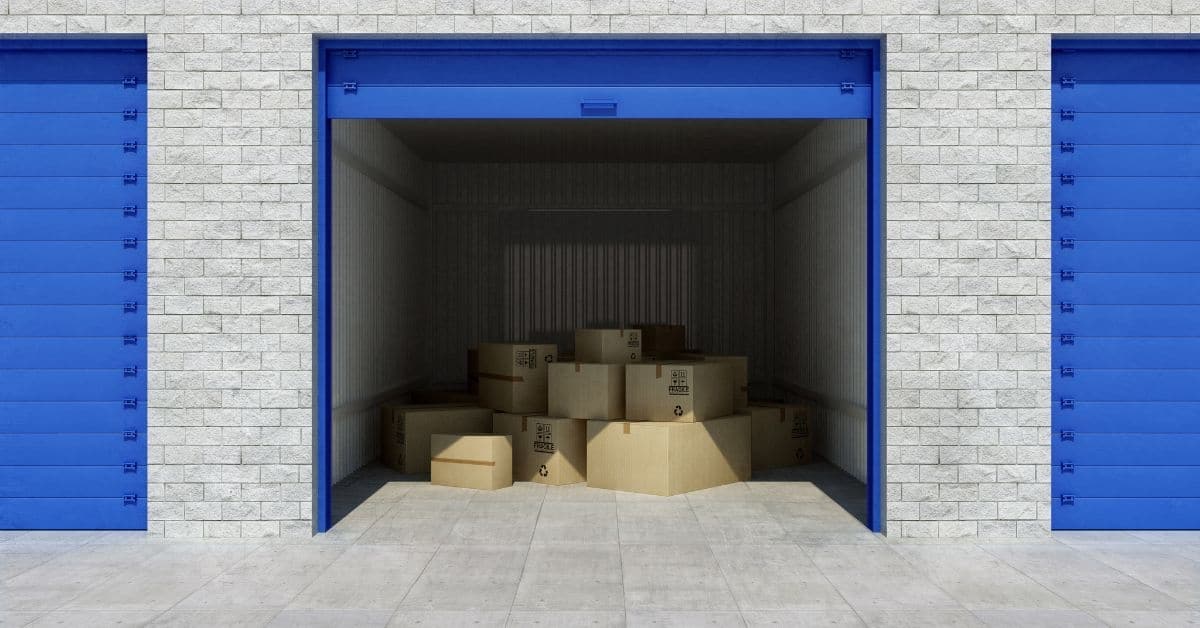If you're an RV owner searching for reliable, covered RV storage near me, you understand the importance of protecting your investment from weather damage and security risks. Whether you own a motorhome, camper, or trailer, finding the right covered storage solution can safeguard your vehicle year-round. From indoor units with climate control to outdoor covered carports, this guide will walk you through all your options, amenities to consider, and how to book the perfect space nearby.
What Types of Covered RV Storage Are Available?
When looking for covered storage near me, understanding the available types is crucial to matching your protection needs and budget.
- Indoor Storage: Fully enclosed buildings or units that protect your RV from weather elements, pests, and theft. Ideal for long-term storage requiring maximum security and climate control. Outdoor Covered Storage: Open-sided shelters such as covered carports or sheds that provide overhead protection against sun, rain, and snow but may offer moderate security levels. Climate-Controlled Storage: Facilities that regulate temperature and humidity to prevent mold, corrosion, and other moisture-related damage. Dry Storage: Storage designed to keep your RV dry and ventilated, reducing risks of rust and decay.
Indoor vs. Outdoor Covered RV Storage: Quick Comparison
Feature Indoor Storage Outdoor Covered Storage Weather Protection Excellent Good Security High Moderate Cost Higher Lower Size Availability Limited by unit size More flexible Pest Control Yes VariesIndoor storage offers a premium level of protection, especially in climates with severe winters or intense sun exposure. Outdoor covered storage can be more affordable and flexible for larger RVs but may lack some advanced security measures.
How Do I Find Secure and Affordable Covered RV Storage Nearby?
Finding the ideal covered RV storage near me means balancing security, cost, and accessibility.
- Search Local Storage Facilities: Utilize online maps and local self storage websites focused on RV or vehicle storage. Check Security Features: Look for gated storage, fencing, monitored security cameras, and on-site personnel. Compare Pricing: Review monthly and yearly rates, ask about short-term discounts or specials on long-term rentals. Review Customer Feedback: Ratings and reviews provide insight into facility maintenance and customer service quality. Explore Insurance Options: Confirm if the storage facility requires or offers insurance coverage for stored vehicles.
Affordable storage near me doesn’t mean compromising on security — many facilities offer budget-friendly packages with strong protection measures to fit diverse needs.
What Amenities Should I Look for in a Covered RV Storage Facility?
Choosing a facility with the right amenities ensures your motorhome stays in top condition and convenient to access.
- Extended Access Hours: 24/7 or long daily access windows accommodate your schedule. Pest Control Programs: Regular treatments to avoid damage from rodents or insects. Clean and Well-Maintained Grounds: Prevent dust accumulation and maintain a professional environment. Spacious Storage Options: Spaces large enough for slide-outs and oversized campers. Additional Services: Onsite RV repair, maintenance, cleaning, and detailing services add convenience. Insurance Availability: Flexible insurance coverage options to protect your stored vehicle.
Facilities offering these amenities elevate your storage experience from just parking to comprehensive RV care.
Can I Store My RV for Winter or Summer? What Are the Best Seasonal Storage Options?
Most RV owners require seasonal flexibility, making it important to know the best storage practices per season.
- Winter Storage: Indoor or covered storage options with climate or humidity control help prevent damage from freezing temperatures, ice, and snow. Summer Storage: Covered outdoor storage providing shade and ventilation reduces heat buildup and UV damage. Short-Term vs. Long-Term: Many facilities offer month-to-month contracts perfect for seasonal needs, while others emphasize yearly storage savings. Temperature and Humidity Management: Climate-controlled units are optimal for maintaining internal conditions year-round, preserving interior and mechanical components.
Choosing the right seasonal storage type prolongs your RV’s life and reduces costly repairs down the road.
Are There Local RV Parks or Storage Lots That Provide Covered Storage?
Beyond traditional storage units, there are alternative covered RV storage options nearby.
- RV Parks with Storage: Some campgrounds include covered parking spots, combining storage with camping privileges. Commercial Storage Yards: Specialized lots equipped with covered bays and fencing cater specifically to motorhomes and trailers. Private Storage Spaces: Renting covered parking directly from individuals or private lots can offer flexible, affordable solutions.
When selecting between these, prioritize location convenience, security, and any extra services like on-demand maintenance or access to utilities.


How Do I Reserve or Book Covered RV Storage Near Me?
Booking the right covered RV storage spot is straightforward with the right steps:
- Check Availability Online: Most facilities have real-time availability and booking portals. Contact Facilities Directly: Phone or email inquiries can clarify pricing, features, and reservation policies. Prepare Your RV Details: Know your vehicle’s dimensions and preferred storage duration to find the best fit. Read Reviews: Feedback from current renters confirms facility reliability and customer service standards. Confirm Access and Payment Terms: Verify entry hours, payment methods, and cancellation policies before signing.
Booking early, especially in peak seasons, ensures you secure your preferred storage space without last-minute hassles.
Bonus Tips: Preparing Your RV for Covered Storage
To maximize protection while stored under a cover:
- Thoroughly clean your RV inside and out to prevent mold and pest attraction. Winterize plumbing and tanks before cold months to prevent freezing damage. Inflate tires properly and consider tire covers to avoid flat spots and UV cracking. Disconnect batteries or use a trickle charger to maintain power without draining. Seal any vents or openings to reduce pest intrusion.
Proper preparation complements your covered storage choice, ensuring your RV stays safe and ready for your next adventure.
FAQ Section
Q: What is the difference between covered and indoor RV storage?
A: Covered storage usually means a roofed shelter protecting your RV outdoors, while indoor storage fully encloses your vehicle inside a building, offering superior weather, pest, and security protection.
Q: Is covered RV storage more expensive than outdoor uncovered storage?
A: Generally yes, covered storage costs more due to added protection but is still more affordable than fully heavy equipment storage indoor options.
Q: Can I access my RV anytime with covered storage?
A: Access depends on facility policies; some offer 24/7 entry, whereas others have specific operating hours. Verify these details upfront.
Q: Do I need insurance for RV storage?
A: Proof of insurance is commonly required, and having comprehensive coverage protects your investment from theft, weather, or accidental damage during storage.
Q: How do I verify if a storage facility is secure enough?
A: Look for gated entrances, monitored surveillance cameras, on-site management, sturdy fencing, and positive user reviews.
In conclusion, securing covered RV storage near me involves evaluating storage types—from indoor climate-controlled units to affordable outdoor covered spaces—along with desired amenities, security features, and seasonal needs. Taking time to research local facilities, compare pricing and services, and prepare your RV properly will guarantee your camper or motorhome remains protected and well-maintained year-round. Start your search today and enjoy peace of mind knowing your RV has the best covered storage tailored to your lifestyle.